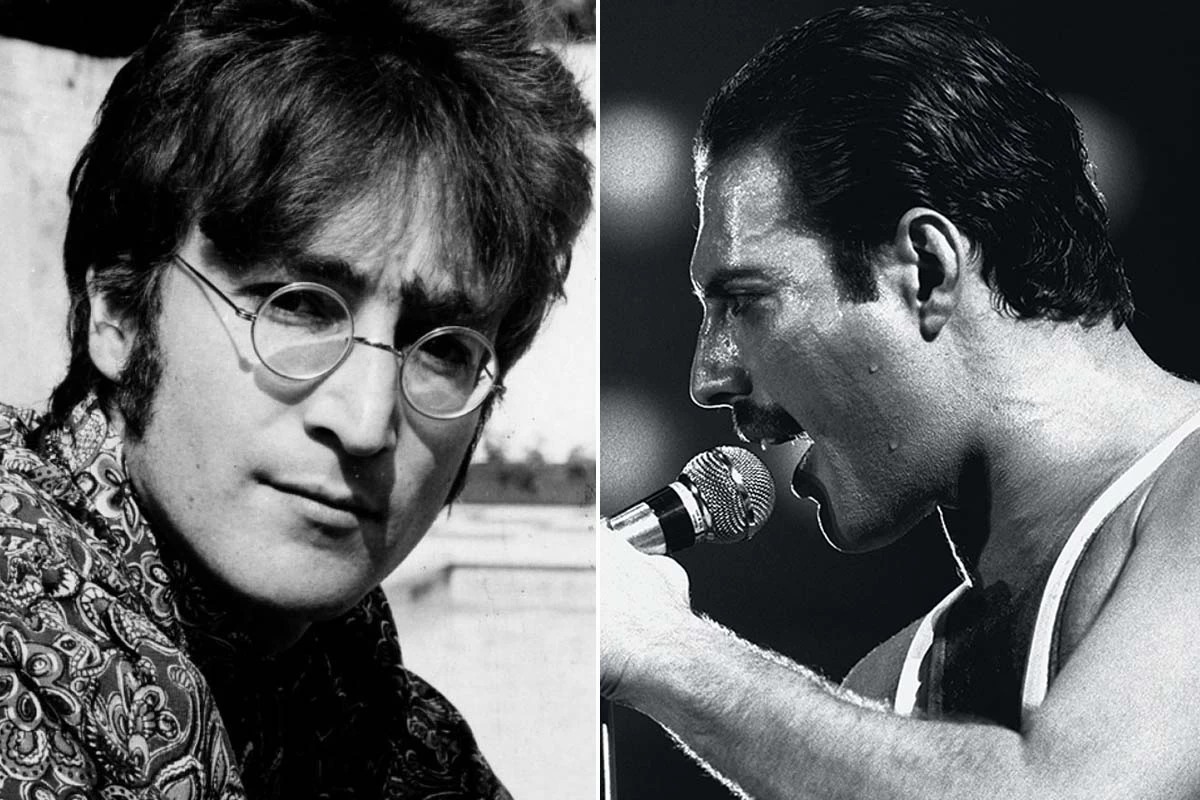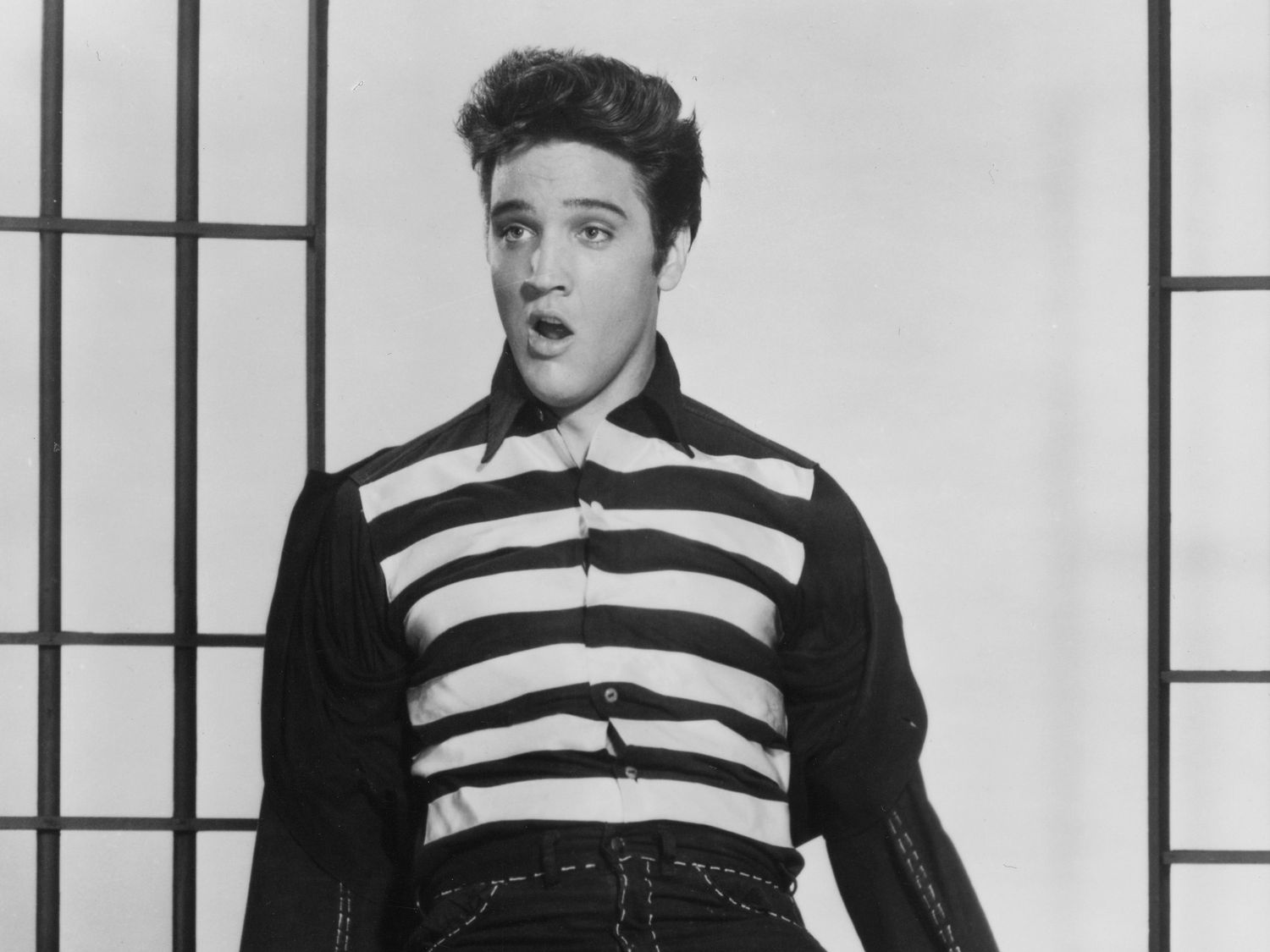Home>Production & Technology>Songwriter>How Did Elton John Change The Singer-Songwriter Genre?


Songwriter
How Did Elton John Change The Singer-Songwriter Genre?
Published: February 26, 2024
Discover how Elton John revolutionized the singer-songwriter genre and left an indelible mark on music history. Explore his impact and influence as a pioneering songwriter.
(Many of the links in this article redirect to a specific reviewed product. Your purchase of these products through affiliate links helps to generate commission for AudioLover.com, at no extra cost. Learn more)
Table of Contents
Introduction
Elton John, a name that resonates with music enthusiasts across the globe, has significantly impacted the singer-songwriter genre. His illustrious career spans over five decades, during which he has left an indelible mark on the music industry. From his captivating stage presence to his timeless melodies, Elton John has become an icon whose influence transcends generations.
As we delve into the life and career of Elton John, it becomes evident that his journey has been nothing short of extraordinary. Born Reginald Kenneth Dwight on March 25, 1947, in Pinner, Middlesex, England, he displayed an innate musical talent from a young age. His passion for music, coupled with his exceptional songwriting abilities, would later propel him to international stardom.
Elton John's impact on the singer-songwriter genre is multifaceted, encompassing not only his musical prowess but also his flamboyant persona and larger-than-life performances. His ability to infuse raw emotion into his lyrics and melodies has resonated with audiences worldwide, earning him a dedicated fan base and critical acclaim.
Throughout his career, Elton John has continually pushed the boundaries of traditional songwriting, incorporating diverse musical elements and experimenting with innovative arrangements. His fearless approach to music has set him apart as a trailblazer in the singer-songwriter genre, inspiring countless artists to embrace creativity and authenticity in their craft.
As we embark on this exploration of Elton John's influence on the singer-songwriter genre, it is essential to appreciate the depth of his impact on the music landscape. From his early influences to his evolution as an artist, each aspect of his journey has contributed to shaping the fabric of contemporary music.
In the subsequent sections, we will unravel the pivotal moments in Elton John's career, from his early influences to his lasting legacy. By delving into the intricacies of his musical evolution, we can gain a comprehensive understanding of how Elton John transformed the singer-songwriter genre and continues to inspire aspiring musicians around the world.
Early Influences on Elton John
Elton John's musical journey was profoundly influenced by a myriad of factors that shaped his artistic sensibilities from a young age. Growing up in a household where music permeated the air, he was exposed to a diverse range of genres, laying the foundation for his eclectic musical style.
One of the most significant influences on Elton John's early years was his exposure to classical and gospel music. His mother, Sheila Eileen, was an accomplished pianist, and her love for classical compositions resonated throughout their home. This exposure to the works of renowned composers such as Beethoven and Mozart instilled in Elton a deep appreciation for intricate melodies and harmonies, which would later manifest in his own songwriting.
Furthermore, the vibrant gospel music that echoed through local churches left an indelible impression on the young musician. The impassioned vocal performances and soul-stirring rhythms ignited a passion for emotive expression within him, laying the groundwork for the soulful inflections that would characterize his future compositions.
In addition to familial influences, Elton John's exposure to the burgeoning rock 'n' roll scene of the 1950s and 1960s played a pivotal role in shaping his musical identity. Artists like Little Richard and Jerry Lee Lewis captivated his imagination with their electrifying performances, igniting his desire to command the stage with unbridled energy and charisma.
Moreover, the emergence of iconic songwriters such as Carole King and Bernie Taupin left an indelible mark on Elton John's formative years. Their poetic lyricism and introspective storytelling resonated with him on a profound level, inspiring him to explore the depths of human emotion through his own songwriting.
In essence, the convergence of classical, gospel, rock 'n' roll, and introspective songwriting served as the crucible from which Elton John's musical identity emerged. These early influences laid the groundwork for his future endeavors, shaping the trajectory of his career and leaving an enduring imprint on the singer-songwriter genre.
Breaking into the Music Industry
Elton John's ascent into the music industry was marked by tenacity, talent, and a relentless pursuit of his artistic vision. In the late 1960s, he embarked on a transformative journey that would propel him from a budding musician to a global sensation.
At the outset of his career, Elton John faced the daunting task of navigating the competitive landscape of the music industry. Undeterred by the challenges that lay ahead, he honed his craft through relentless dedication, honing his skills as a songwriter and performer. It was during this formative period that he crossed paths with lyricist Bernie Taupin, sparking a creative partnership that would define his musical legacy.
The pivotal moment in Elton John's career came with the release of his eponymous album, "Elton John," in 1970. This debut album showcased his exceptional songwriting abilities and virtuosic piano skills, captivating audiences and critics alike. The poignant ballad "Your Song" emerged as a standout track, earning widespread acclaim and solidifying his status as a formidable talent in the singer-songwriter genre.
As Elton John's star continued to rise, he embarked on a relentless touring schedule, captivating audiences with his electrifying performances and flamboyant stage presence. His dynamic fusion of rock, pop, and soul resonated with diverse audiences, propelling him to international acclaim.
The release of the album "Goodbye Yellow Brick Road" in 1973 marked a watershed moment in Elton John's career, catapulting him to unprecedented fame. The album's eclectic blend of musical styles and introspective lyricism showcased his versatility as an artist, earning accolades and cementing his position as a trailblazer in the music industry.
Elton John's meteoric rise to stardom was further underscored by his flamboyant persona and extravagant fashion sense, captivating the public's imagination and solidifying his status as a cultural icon. His larger-than-life persona transcended the confines of traditional singer-songwriter imagery, redefining the boundaries of artistic expression in the music industry.
In essence, Elton John's foray into the music industry was characterized by unwavering determination and an unwavering commitment to his craft. His ability to captivate audiences with his musical prowess and magnetic stage presence solidified his position as a transformative figure in the singer-songwriter genre, laying the groundwork for a prolific and enduring career.
This period marked the beginning of Elton John's indelible impact on the music industry, setting the stage for his continued evolution as an artist and his enduring influence on future generations of musicians.
Impact on the Singer-Songwriter Genre
Elton John's impact on the singer-songwriter genre reverberates through the annals of music history, transcending conventional boundaries and reshaping the artistic landscape. At the core of his influence lies a profound ability to infuse raw emotion into his compositions, weaving intricate narratives that resonate with universal themes of love, loss, and the human experience.
One of the defining aspects of Elton John's impact on the singer-songwriter genre is his adept fusion of diverse musical elements. His seamless integration of rock, pop, and soul genres created a sonic tapestry that defied categorization, inspiring a new wave of artists to embrace eclecticism in their songwriting. By transcending genre constraints, Elton John expanded the horizons of the singer-songwriter genre, paving the way for a more inclusive and expansive musical landscape.
Moreover, Elton John's introspective lyricism and emotive storytelling set a new standard for authenticity and vulnerability in songwriting. His ability to articulate profound emotions with poetic finesse resonated with audiences on a deeply personal level, forging an intimate connection between the artist and the listener. This emotional resonance became a hallmark of the singer-songwriter genre, influencing subsequent generations of musicians to delve into the depths of their own experiences and articulate them through music.
Furthermore, Elton John's impact on the singer-songwriter genre extended beyond his musical compositions, encompassing his larger-than-life stage persona and flamboyant aesthetic. His dynamic performances and theatrical flair redefined the traditional image of a singer-songwriter, challenging stereotypes and inspiring artists to embrace individuality and expressiveness in their presentation.
In addition, Elton John's collaborations with lyricist Bernie Taupin exemplified the power of creative partnerships in the singer-songwriter genre. Their symbiotic relationship yielded a rich tapestry of storytelling, demonstrating the potency of collaborative songwriting in capturing the essence of human emotion and experience.
Elton John's enduring impact on the singer-songwriter genre is evidenced by the countless artists who have drawn inspiration from his innovative approach to music and performance. His influence continues to reverberate through contemporary music, serving as a testament to the transformative power of artistic expression and emotional authenticity.
As we reflect on Elton John's impact on the singer-songwriter genre, it becomes evident that his contributions have transcended the confines of time and genre, leaving an indelible imprint on the fabric of musical expression. His ability to infuse passion, vulnerability, and creativity into his compositions has redefined the parameters of the singer-songwriter genre, inspiring a legacy that resonates with aspiring musicians and avid listeners alike.
Evolution of Elton John's Music
The evolution of Elton John's music is a captivating chronicle of artistic innovation and sonic exploration. From his early forays into the music industry to his enduring legacy as a global icon, Elton John has continually redefined his sound, embracing diverse influences and pushing the boundaries of traditional songwriting.
At the onset of his career, Elton John's musical repertoire exuded a melodic richness and lyrical depth that resonated with audiences on a profound level. His debut album, "Elton John," showcased his exceptional songwriting abilities and virtuosic piano skills, laying the groundwork for a prolific and transformative musical journey. The introspective ballad "Your Song" emerged as a poignant testament to his lyrical prowess, capturing the hearts of listeners with its emotive storytelling and timeless melody.
As his career unfolded, Elton John embarked on a dynamic exploration of musical genres, seamlessly integrating rock, pop, and soul elements into his compositions. The release of the iconic album "Goodbye Yellow Brick Road" marked a pivotal moment in his evolution, showcasing a diverse sonic palette that underscored his versatility as an artist. From the anthemic exuberance of "Saturday Night's Alright for Fighting" to the introspective balladry of "Candle in the Wind," the album epitomized Elton John's ability to traverse musical landscapes with effortless grace.
Furthermore, Elton John's collaboration with lyricist Bernie Taupin yielded a treasure trove of evocative storytelling and introspective lyricism, solidifying his reputation as a consummate storyteller through music. Their creative synergy gave rise to timeless classics such as "Rocket Man," "Tiny Dancer," and "Bennie and the Jets," each bearing the indelible imprint of their collective artistry.
As the decades unfolded, Elton John's music continued to evolve, embracing new sonic textures and thematic explorations. His foray into theatrical productions and film scores showcased a willingness to venture beyond conventional musical boundaries, demonstrating a fearless commitment to artistic experimentation.
In essence, the evolution of Elton John's music is a testament to his unwavering commitment to creative exploration and emotional authenticity. His ability to seamlessly weave diverse musical elements into a cohesive tapestry of sound has solidified his position as a trailblazer in the music industry, inspiring generations of artists to embrace innovation and individuality in their craft.
As we trace the trajectory of Elton John's musical evolution, it becomes evident that his enduring legacy is defined by a relentless pursuit of artistic excellence and a boundless spirit of creativity. His music continues to captivate and inspire, serving as a timeless testament to the transformative power of musical expression.
Legacy and Influence on Future Artists
Elton John's enduring legacy extends far beyond the confines of his illustrious career, permeating the fabric of contemporary music and inspiring future generations of artists. His indelible imprint on the singer-songwriter genre and the broader musical landscape is a testament to the transformative power of artistic expression and emotional resonance.
One of the most profound aspects of Elton John's legacy lies in his ability to transcend generational boundaries, captivating the hearts and minds of audiences across disparate eras. His timeless compositions continue to resonate with listeners, serving as a source of inspiration for aspiring musicians who seek to emulate his emotive storytelling and melodic ingenuity. From the introspective balladry of "Your Song" to the anthemic exuberance of "Crocodile Rock," Elton John's music transcends the constraints of time, evoking a sense of nostalgia and emotional connection that endures through the ages.
Moreover, Elton John's influence on future artists is exemplified by the breadth and depth of his creative experimentation. His fearless approach to musical innovation has emboldened a new generation of musicians to explore diverse genres, challenge artistic conventions, and embrace eclecticism in their songwriting. His ability to seamlessly integrate rock, pop, and soul elements into a cohesive sonic tapestry has set a precedent for artistic versatility and boundary-pushing creativity.
Furthermore, Elton John's collaborative spirit and enduring partnership with lyricist Bernie Taupin serve as a beacon of inspiration for aspiring songwriting duos. Their symbiotic relationship exemplifies the power of creative synergy in crafting evocative narratives and timeless melodies, underscoring the potency of collaborative songwriting in capturing the essence of the human experience.
As contemporary artists continue to draw inspiration from Elton John's musical legacy, his influence reverberates through a diverse array of genres, from pop and rock to indie and alternative music. His impact is palpable in the heartfelt lyricism and soul-stirring compositions of emerging singer-songwriters, echoing the profound emotional depth that has become synonymous with his artistic oeuvre.
In essence, Elton John's legacy and influence on future artists are characterized by a profound resonance that transcends the boundaries of genre and time. His enduring impact serves as a testament to the enduring power of music to evoke emotion, inspire creativity, and forge an intimate connection between the artist and the listener. As aspiring musicians continue to heed his artistic call, Elton John's legacy will endure as a timeless testament to the transformative potential of musical expression.











